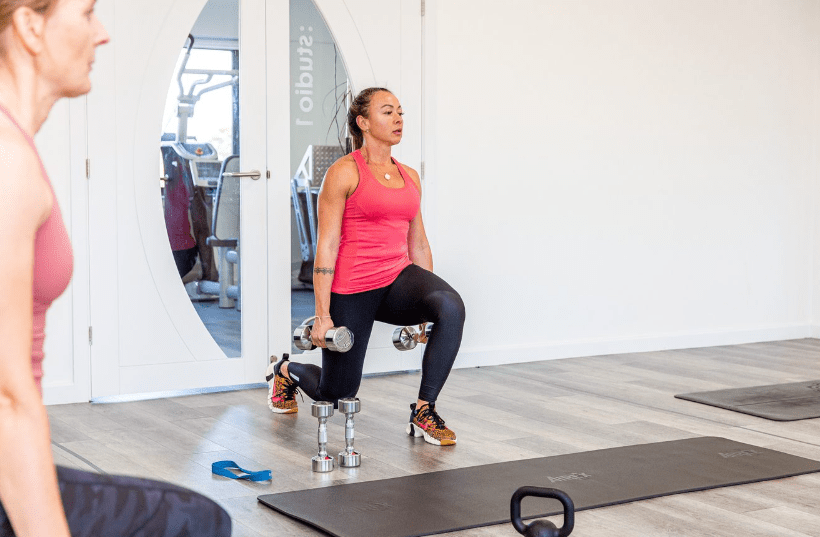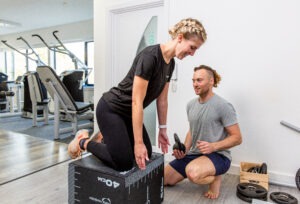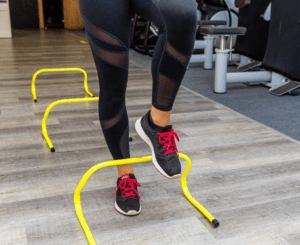Introduction:
Cancer is a formidable adversary, affecting millions of lives worldwide. The scary statistic is that 1 in 2 of us will have cancer at some point in our life. While medical advancements have made great strides in cancer treatment, prevention remains a powerful weapon in the fight against this disease. Increasingly, scientific research has shown that exercise plays a crucial role in reducing the risk and recurrence of cancer and improving outcomes for those already diagnosed. In this blog, we will explore the compelling evidence that underscores the connection between exercise and cancer, along with practical recommendations to incorporate physical activity into your daily routine.
It is important to note that Cancer is not a single disease, but a group of diseases characterised by the uncontrolled growth and spread of abnormal cells that can affect virtually any organ or tissue in the body. The diversity of cancer types underscores the complexity of the diseases and emphasises the need for tailored approaches to treatment and prevention.
What’s the link between exercise and cancer risk reduction?
Numerous studies have demonstrated a strong correlation between regular physical activity and a decreased risk of various cancer types. Research published in the Journal of Clinical Oncology suggests that exercise is associated with a lower risk of breast, colon, endometrial, and lung cancer. The mechanisms behind this reduction in risk are multifaceted and include improved immune function, regulation of hormones, and reduced inflammation.
- Hormone Regulation:
Physical activity helps regulate hormone levels, which is crucial in cancer prevention. For instance, exercise can lower Oestrogen levels in postmenopausal women, reducing the risk of breast cancer. Additionally, regular exercise can help regulate insulin, decreasing the risk of cancers associated with high insulin levels, such as colorectal cancer.
- Enhanced Immune Function:
Exercise has been shown to enhance the function of immune cells, making it easier for the body to identify and combat cancer cells. This immune boost may contribute to lower cancer risk and improved outcomes in cancer patients.
Exercises as an Adjunctive Cancer Therapy
Exercise doesn’t just play a preventive role; it can also be an integral part of cancer treatment and recovery:
- Improved Quality of Life:
Cancer treatments can take a toll on the body, leading to fatigue, muscle loss, and reduced overall well-being. Exercise can help alleviate these symptoms and improve the quality of life for cancer patients by increasing energy levels and reducing the side effects of treatment.
- Enhanced Treatment Efficacy:
Some research suggests that exercise may enhance the effectiveness of cancer therapies. Studies have shown that physically active cancer patients often have better responses to treatments like chemotherapy and radiation therapy.
- Psychological Benefits:
Dealing with cancer is not just a physical battle; it’s an emotional and mental one as well. Exercise has been linked to reduced anxiety, depression, and improved mood, providing much-needed psychological support during the cancer journey.
Are there any guidelines as to what type or how much exercise people with cancer should be doing?
Guidelines for all are tricky due to the variable nature of the diseases within the cancer framework. However, assuming sign-off from any relevant clinical support we advocate 75-150 minutes of moderate cardiovascular exercise per week. Alongside this we recommend 2 weights/resistance exercise sessions. In our clinic, we offer personalised support to help tailor an exercise programme based on objective measurement of fitness, listening to your specific goals and subjective information you feel comfortable telling us. Our aim is to work together to help you feel your best.
Tips From us at tops:health
We strongly believe in the holistic approach to health and wellbeing and we understand the powerful connection between exercise and cancer. However, we also understand cancer has such diverse physical, social and psychological impacts on lives. Here are some tips for you:
- Start slowly: If you’re new to exercise or haven’t been active for a while, start slowly and gradually increase the intensity and duration of your workouts.
- Find an Activity you Enjoy: The key to sticking with an exercise routine is finding activities you enjoy. Whether it’s walking, swimming, dancing, or yoga, choose activities that make you look forward to being active.
- Consistency is Key: Aim to include strength training as well as aerobic exercises such as walking, cycling or running as recommended by Public Health England and the NHS.
- Remember that we happy to help.
We hope this blog has summarised the power exercise has in the fight against cancer. If you feel you or someone you know would like to know more or would benefit from some guidance don’t hesitate to get in touch.



